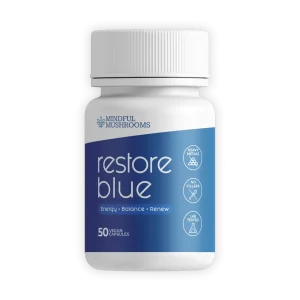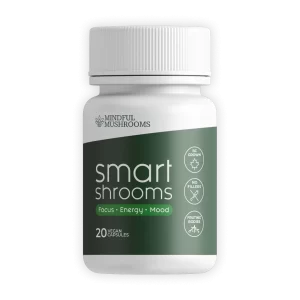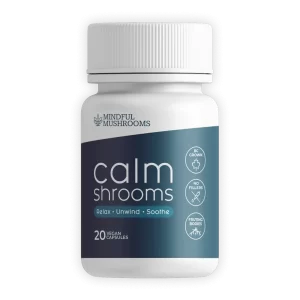In a world where daily stress has become almost a baseline condition, many people are turning to nature in search of calm. Among the most fascinating and increasingly studied elements of natural health are adaptogens—a class of plants and fungi known for their ability to help the body cope with stress, both physical and emotional. While they’ve been used for centuries in traditional systems of medicine, modern science is now catching up, offering insight into how adaptogens actually work.
At their core, adaptogens are natural substances that help the body “adapt” to stress. Unlike a sedative or stimulant, which pushes the body in one direction (either calming or energizing), adaptogens promote a sense of balance. They regulate and normalize the body’s functions rather than overcorrecting. In essence, they support the body’s return to homeostasis—its natural state of equilibrium.
One of the most remarkable things about adaptogens is how they work with the hypothalamic-pituitary-adrenal (HPA) axis—the system that governs our response to stress. When we face challenges (tight deadlines, bad news, too much caffeine), the HPA axis triggers the release of cortisol and adrenaline. Over time, chronic activation of this system can lead to fatigue, mood swings, brain fog, and a weakened immune response. Adaptogens act almost like intelligent moderators: they help the HPA axis respond more appropriately, reducing overreaction and preventing burnout.
Unlike pharmaceuticals that target one specific mechanism, adaptogens have a multi-directional effect. They don’t just calm you down or boost you up—they do what your body needs at the moment. This “normalizing” function is why someone might take the same adaptogen and experience different effects depending on whether they’re tired, anxious, or overstimulated.
Let’s take a closer look at what modern science is beginning to uncover about adaptogens and how they interact with our stress response:
- Ashwagandha, an adaptogen long used in Ayurvedic medicine, has been shown in clinical studies to significantly reduce cortisol levels and support sleep quality, mood, and resilience under pressure. It’s one of the best-studied adaptogens for managing chronic stress and anxiety.
- Rhodiola rosea, traditionally used in Siberian regions, has demonstrated the ability to reduce fatigue and improve mental performance during periods of stress or overwork. Studies show it supports mitochondrial function and reduces the impact of stress hormones on the body.
- Eleuthero (Siberian Ginseng) supports physical endurance and recovery from intense activity. It’s often used by athletes and people with physically demanding lifestyles.
- Reishi mushroom, valued in East Asian medicine for centuries, helps support calm and emotional balance. While not a stimulant, Reishi promotes deep rest and emotional regulation over time.
- Cordyceps, another functional mushroom, may help regulate energy levels and support resilience without overstimulation, making it ideal for people recovering from burnout or fatigue.
These natural substances don’t offer instant gratification—they don’t mask symptoms or offer a spike in energy followed by a crash. Instead, they work steadily over time, helping the body build resilience to stressors. This slow-and-steady support is what makes them so valuable in daily routines, especially when combined with other wellness practices like mindfulness, movement, and good sleep.
An important distinction must be made between adaptogens and other common supplements or stimulants. Caffeine, for example, can offer a temporary boost but does so by triggering the stress response—something adaptogens actively help regulate. Meanwhile, vitamins may fill nutritional gaps, but they don’t specifically address the physiological pathways of stress. Adaptogens, by contrast, interact directly with stress systems, modulating hormone levels, supporting neurotransmitter balance, and enhancing the body’s ability to repair itself under strain.
Integrating adaptogens into a modern lifestyle doesn’t require overhauling your entire routine. Instead, think of them as part of a broader ecosystem of habits designed to reduce your allostatic load—the wear and tear on the body caused by repeated or prolonged stress. Whether it’s through teas, tinctures, powders, or capsules, taking adaptogens consistently (not just when you feel overwhelmed) helps condition the body to respond more gracefully when the next stressful event inevitably arrives.
It’s also worth noting that while many adaptogens are incredibly gentle, they are still active substances. Everyone’s body is different, and it’s wise to start slowly, observing how your energy, mood, and focus respond over time. Unlike quick fixes, adaptogens reward patience and consistency.
The resurgence of interest in adaptogens reflects a broader cultural shift: a move away from “powering through” stress, and toward listening to the body. We’re slowly learning that resilience doesn’t mean ignoring fatigue or anxiety—it means creating the internal resources to meet life’s challenges without depleting ourselves.
The science behind adaptogens is still unfolding. While traditional knowledge offers a deep well of wisdom, the modern research community continues to investigate their molecular mechanisms, safety profiles, and long-term benefits. What’s exciting is that the emerging evidence largely confirms what ancient practitioners knew: that certain plants and fungi, when respected and used mindfully, can gently yet powerfully support our health from the inside out.




